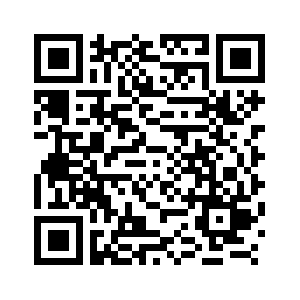by Keren Setton
JERUSALEM, Feb. 7 (Xinhua) -- In a dimly lit room at a Tel Aviv hotel, with a DJ playing music in the background, 50 cyber-enthusiasts and programmers were clicking away at their computers, eager to stand out in a competition.
Competing for prizes, the contestants were selected from 1,000 candidates who had taken part in online challenges to assess their talents in dealing with cyber security problems.
The competition, named CyTaka, was initiated by Doron Amir. After years of experience in the field of cyber security, he noticed an increasing demand for cyber security experts, and he believes that programmers will be able to meet such needs.
"If I can combine ... cyber people with programmers, we can create 'cyber-programmers' (who) know how to handle code ... (so) that in the next generation of the programming world, you will see more safe programs," said Amir.
Amir believes that the typical procedure of training cybersecurity experts is excessively protracted, squandering valuable time at a time when dangers are only increasing. His answer is to tap into the enormous pool of programmers already available. Their new codes will be less vulnerable to attacks if they master the basics of cybersecurity. The software will be much safer as a result.
Together with Guy Anish and Dmitrii Rubinov, Amir founded CyTaka, a cyber-security firm that bears the same name as the competition and is behind a new platform for developers to win money by taking on cybersecurity challenges. The more complex challenges they take on and succeed, the greater the reward is.
In the latest competition, held last week in Tel Aviv, the first three contestants brought home substantial prizes, with the first-place winner receiving 50,000 U.S. dollars. The competition featured Yossi Cohen, a special guest of honor and former leader of the Mossad, the national intelligence agency of Israel.
Before joining the competition, participants had already taken the challenges on an app for several weeks. These challenges were created by a community of 10,000 cyber experts, including students, cybersecurity professionals, and former military personnel who served in cyber units.
Many of the contestants, according to Amir, found jobs soon after being exposed during the competition, and most of them were hired by the government.
Matan Elgressy, an 18-year-old from a small community in northern Israel, is one of the contestants. He has been programming since he was 13 and has won first place in a previous competition. He returned for the sole purpose of having fun. Months before he began his compulsory military service in a technology unit of the army, he was hired by a government agency for a cybersecurity role.
"Cybersecurity is the future, it's what we're dealing with now, and all our future is about technology," Elgressy told Xinhua.
"Of course, there are cyberattacks and many other things that can lead to bad things happening, so we must learn how to protect and develop new systems," said Elgressy.
Adi Chen Arbib, 22, is one of the competition's few female contestants. She currently works at a cybersecurity start-up after serving in a leading technology unit in the military.
"Neither countries nor enterprises, in my opinion, have invested enough in cybersecurity," she said, adding cybersecurity investment has become very important since cybersecurity mistakes might hurt critical infrastructures.
Solving problems created by cybersecurity flaws is behind Amir's motivation to start his company.
"If you ask how a hacker got into my smartphone or something like that, it's most likely because the programmer left an open door. This is a huge problem that must be fixed now," he said.
"The better and more successful you are, and the smarter you are, the smarter you'll be in welcoming the malevolence of our attackers," former Mossad chief Yossi Cohen said at the competition.
Due to a global shortage of cybersecurity workers, many jobs openings are available. The increasing demand for cybersecurity experts is being met by a large number of programmers who are willing to learn the subject, according to Amir.
"At the end of the day, the participants (of the competition) belong to a big community that shares information and narrows the gap between programmers and cyber professionals," said Amir. ■



